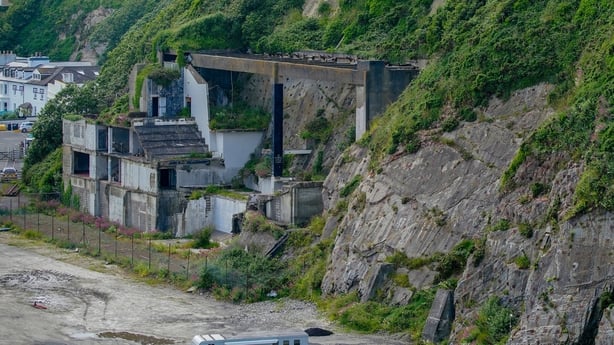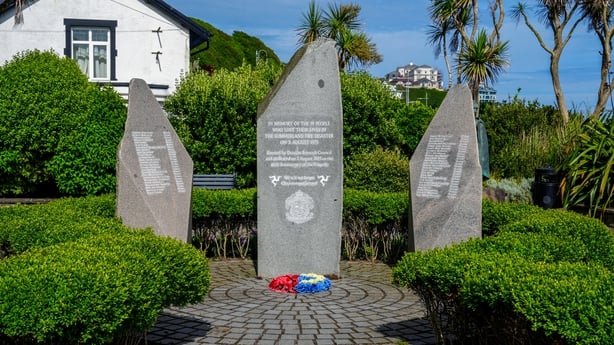Families affected by a horrific fire on the Isle of Man more than 50 years ago have lodged an application for a fresh inquest.
The blaze broke out at the Summerland leisure complex, in the capital Douglas, on 2 August 1973.
It killed 50 people, including 11 children. More than 100 people were injured.
The victims and survivors came from Ireland, the UK and Australia.
The fire was determined to have originated at a crazy golf course outside the complex but quickly spread through Summerland within 30 minutes, including the glass structure that covered the building.
Thousands of holidaymakers had been enjoying their summer break, making use of the five floors of amusement arcades, dance halls, a bingo hall, restaurants and bars.

It later emerged that flammable Galbestos cladding was known to be a safety risk but was allowed to be used in the construction of what was then a "state-of-the-art" complex.
The incident, which was one of the deadliest fire disasters in British history, left victims' families and survivors with lingering questions and unresolved grievances.
They called for a thorough investigation into circumstances surrounding the fire.
Listen:
Ruth McQuillan-Wilson - Summerland fire survivor
Noeleen - Summerland tragedy survivor
A solicitor for many of those affected announced that an application for a fresh inquest into the fire had been lodged.
Darragh Mackin of Belfast-based Phoenix Law said the application underscores the concerns of the affected families.
Mr Mackin, who acts for the Justice for Summerland Campaign, said the call came after it was uncovered that a forensic scientist who worked on analysis of the fire had provided evidence in other cases that was later found to be unreliable and where convictions had been quashed.
"It is difficult to envisage a more compelling set of circumstances to which point firmly in favour of a fresh investigation.
"This revelation coupled with the evolution in forensic techniques make a clear and indisputable need for a fresh investigation," he said.

Mr Mackin represented several families affected by the Stardust tragedy in Dublin, which claimed the lives of 48 young people.
Last April, an inquest concluded that the victims of that fire had been unlawfully killed.
A previous finding in 1982 said the Stardust fire had been started deliberately, a theory the families never accepted.
One of the grounds for the new Summerland inquest is listed as an insufficiency or irregularity in the proceedings lasting just one day, with its conclusions largely limited to the medical cause of death.
Phoenix Law also argues that there have been developments in forensic science which could benefit a new inquiry.
It added that the Stardust fire inquest demonstrates the significance of the development of forensic techniques within the area of fire science.
A spokesman for the Isle of Man government said: "The Attorney General's Chambers can confirm that an application has been received and will be given appropriate consideration".

